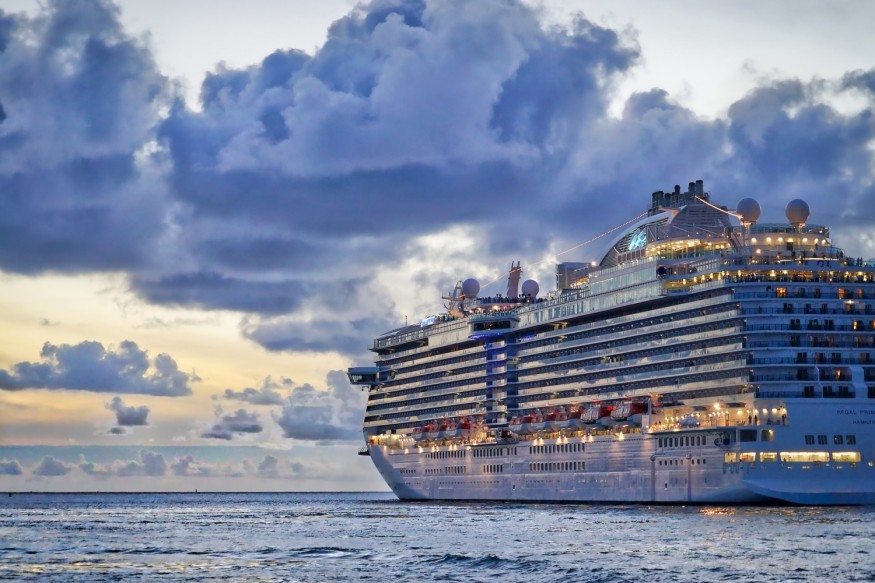
Staying connected to the internet has become more important for us than ever, due to the fact that our lives have become so dependent on it. Even when embarking on a cruise ship adventure or flying in the air, staying connected is a must for many people. As the demand for connectivity at sea has increased, cruise lines such as Royal Caribbean have started working diligently to provide internet access to their passengers.
There was a time when having internet access at sea or during a cruise ship adventure was a nice perk and luxury that only some could afford, but now it has become a necessity. Cruise lines have realized the importance of staying connected to the internet for their passengers and how it can be an additional source of income for them.
In this post, we will explore how cruise lines offer WiFi to their passengers, along with several other things related to cruise line WiFi such as infrastructure and equipment, pricing and packages, and bandwidth management.
How Do Cruise Lines Offer Wi-Fi to Their Passengers?
To provide WiFi connectivity to their passengers, cruise lines use a variety of technologies to ensure a reliable and fast internet connection. Most cruise lines take advantage of satellite technology to provide internet access to their passengers. This type of technology involves cruise companies collaborating with satellite communication providers and using geostationary satellites in space to connect the ship to the internet. Satellite internet offers high-speed internet with wide coverage across different regions and can serve multiple users simultaneously without any network congestion.
Apart from satellite internet, some cruise lines use cellular networks or land-based wireless networks to supplement the satellite connection and provide internet connectivity. Overall, the main technology that cruise lines use to provide internet access to their customers is satellite technology, supplemented by land-based wireless networks and cellular networks to provide coverage in remote areas.
Infrastructure and Equipment
Cruise ships are equipped with specialized infrastructure to ensure fast and reliable internet connectivity. Antennas and receivers are strategically placed all around the cruise ship for signal reception and minimal interference. These devices receive signals from geostationary satellites and transmit them for processing. Antennas and receivers are typically mounted on top of the ship to maximize signal reception.
The task of handling data processing and ensuring smooth connectivity is assigned to Network Operations Centers. Cruise lines operate dedicated network operation centers that monitor and maintain the performance of the cruise WiFi to ensure smooth and reliable connectivity. These centers also address any technical issues that the passengers may face.
Cruise ships undergo regular maintenance and equipment updates to ensure that the entire infrastructure and equipment are functioning optimally, ensuring fast and seamless connectivity across the ships. This includes installing the latest hardware, performing software updates, replacing outdated equipment, and performing regular maintenance checks.
Along with all of this, cruise lines also have backup systems in place to ensure uninterrupted connectivity in case things go south and there are any technical issues or disasters. These systems ensure that if one connection or component fails, there are backup options available that can maintain connectivity for passengers.
Pricing and Packages
Cruise lines offer a variety of pricing models and packages to fulfill the internet needs of their passengers. Pricing models depend on data usage patterns and durations. These include per-minute, per-day, or per-voyage pricing options. Generally, most passengers go with the per-day pricing options. Tiered packages are also available to allow passengers to choose the plan that fulfills their data requirements.
The price of WiFi on a cruise ship can range anywhere between $15 and $30 per device per day, but it all depends on the plan that you are selecting. For instance, Carnival Cruise Line's value WiFi plan starts at $17.00/person per day, whereas the premium WiFi plan starts at $18.70/person per day. The price of the WiFi subscription depends on the package that you are selecting. Keep in mind that high-demand services, like audio and video streaming, come with additional charges.
Bandwidth Management
Since cruise lines have to serve a large number of passengers with limited bandwidth, they employ various bandwidth management techniques to ensure a satisfactory WiFi experience for all passengers. Some of the bandwidth is allocated for essential ship operations, such as critical communication, navigation, and safety. Whereas, to ensure equitable distribution of the rest of the bandwidth and ensure a satisfactory Wi-Fi experience for all passengers, cruise lines implement fair usage policies, bandwidth limitations, and data optimization techniques.
© 2025 ScienceTimes.com All rights reserved. Do not reproduce without permission. The window to the world of Science Times.












